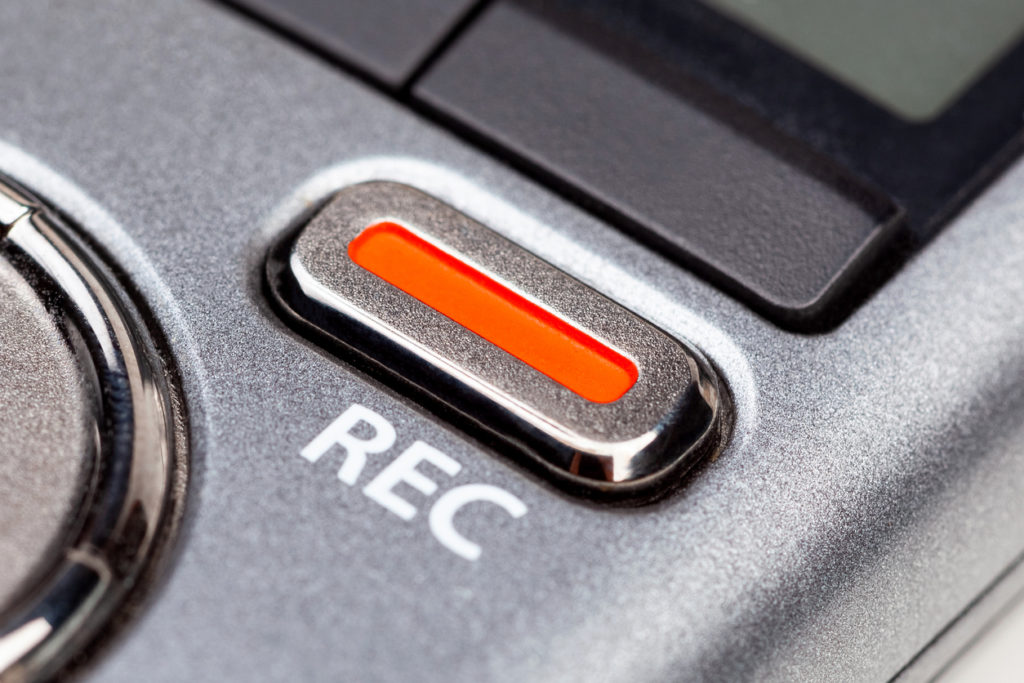
In Maryland, the Wiretap Act makes it illegal to record someone without their knowledge. As such, a person has legal grounds to sue someone who records them without permission. However, anyone who wishes to go forward with a lawsuit will need to have proof that another person recorded them without their knowledge. This blog discusses different situations where a person could sue someone for recording them without permission. Take a look.
What Does the Maryland Wiretap Act Prevent?
This law prohibits people from recording private conversations between persons unless they are part of the conversation or have permission from all parties involved. It covers private in-person conversations and applies to all electronic communication, particularly discussions over telephones or mobile devices.
Moreover, the Maryland Wiretap Act criminalizes the recording of any kind of conversation if the person recording has criminal intentions for doing so. When ill intentions are involved, the consent of all parties in the conversation no longer becomes relevant in the case. Violators can face criminal or civil penalties.
In addition, this law works hand-in-hand with the state’s data privacy laws. In particular, it prohibits the disclosure of any images or information that a recorder will intercept. This law gives Maryland citizens reason to expect a level of privacy in their homes.
Federal Wiretap Act Exceptions
A Federal Wiretap Act also exists, which usually trumps state laws. However, state laws that offer more recording protections will trump federal law. For example, the federal Wiretap Act has exceptions for phone service providers and law enforcement agents.
Under the federal system, telephone and mobile phone service providers can legally record calls without the explicit consent of the party they are recording. Reasons, why they may do so, include quality assurance, rights defense, and property protection.
Likewise, law enforcement officials can hold conversations with people whom they have reason to believe engage in illegal activities. Thus, they record their phone calls to confirm their suspicions.
However, Maryland is a two-party consent state. This protective state law requires the exceptions to the Wiretap Act to at least get the knowledge of the parties in a recorded conversation.
A person might have grounds to sue these officials if they failed to disclose the fact that they were recording. Consider seeking legal advice to determine your options.
Does the Wiretap Act Include Protections for Text Messages?
Although the Maryland Wiretap Act has a provision protecting telephone and electronic communications, courts have maintained that the law does not apply to a person who accesses another person’s text messages without their permission. The Wiretap Act states that an interception must occur during the communication to count as grounds for someone to sue.
Since a person is merely accessing text messages that a phone already has in storage, there is no interception going on. As such, the Wiretap Act does not apply to the situation. However, other privacy laws may apply and serve as grounds for a person to sue someone who accessed their text messages without permission.
Can I Sue Someone for Putting a Hidden Camera in My Private Space?
A person in a place where they normally disrobe and expose private body parts has the right to privacy. Any recordings of them in such a place can count as an invasion of their privacy. Accordingly, it serves as grounds for a lawsuit.
In Maryland, retail stores that install hidden cameras in bathrooms or dressing rooms without occupants knowing about them face a misdemeanor. In addition, the Wiretap Act prevents people from using cameras on private property (other than their own) to secretly record and observe the place and its occupants.
What Criminal Penalties and Civil Suits Do Violators Face?
Wiretap Act violations are felonies. Violators face imprisonment of up to five years and fines of up to $10,000. Meanwhile, penalties that hidden camera violators face include misdemeanor charges, such as one-year jail time and $2,500 fines.
If a person wins a lawsuit, some awards the court can give them include attorney’s fees and litigation costs. These actual and punitive damages are available to any victim of the Wiretap Act and hidden camera law violators.
Final Words: When Can I Sue Someone for Recording Me Without My Permission?
Citizens of Maryland can sue a person for recording them without permission when they have violated the state’s Wiretap Act or privacy laws. Should they have reason to believe that a person violated these laws, they can seek legal assistance from a qualified attorney.
Our firm of Albers and Associates has lawyers who are familiar with the specific state laws of Maryland in terms of privacy. Get in touch with our team today to discuss your situation, and we will gladly craft a legal strategy tailored to your needs.
